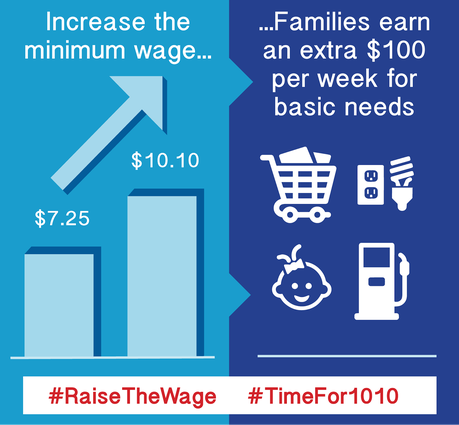
While the economy is no longer in recession (according to economists), the American economy is still very sluggish -- growing at a far smaller rate than the 3% GDP that signals a healthy economy. The question at this point is how to get the economy moving again -- creating new demand and new jobs.
The Republicans say the way to do it is to cut taxes for corporations. Frankly, that's laughable. No corporation pays anywhere near the top tax rate, regardless of how many billions they make in profit, and many corporations pay no taxes at all. The truth is that corporate America is already sitting on more than a trillion dollars (more than at any time in our past), and it is not increasing demand or creating new jobs. It is just sitting in corporate bank accounts, and that's just what any new tax cuts or subsidies would do.
So what would get the economy moving again -- raising demand and creating new jobs? President Obama and the Democrats want to pass a bill to repair our crumbling transportation infrastructure. That would create some new jobs and pump a bit of money into the economy. But there is something else that the Democrats want to do that would provide a huge boost to the economy -- raising the minimum wage from $7.25 an hour to $10.10 an hour.
I have said this many times on this blog, but I never showed just how big that boost to the economy would be -- so let's do a little math and figure it out.
The current minimum wage of $7.25 an hour comes out to about $15,080 a year (assuming a full-time worker works 52 weeks a year without missing any unpaid work time (like for being sick). A $10.10 an hour minimum wage would raise that yearly salary to about $21,008. That means a minimum wage worker would make an additional $5,928 a year -- and since they are barely subsisting on the current salary, it is very likely they would need to spend all of that new money.
According to the Bureau of Labor Statistics, there are at least 1.6 million Americans working for the current minimum wage. Multiplying that 1.6 million times the $5,928 a year raise, we find that just the minimum wage workers would be spending an additional $9,484,800,000, or nearly $9.5 billion.
That's a huge boost in new spending circulating through the economy, and that's only considering those currently making minimum wage. Undoubtably, making of those now making less than that would also get some kind of raise, and those making just above the minimum wage would also have their salaries increased. In other words, that $9.5 billion in new spending would just be a minimum figure -- and the real figure in new spending would probably be substantially higher.
So we have a choice. We can keep the Republicans in power in the House -- and the best that would happen is more tax cuts for rich people and corporations (which would do nothing to get the economy moving or create jobs). Or we can vote a Democratic majority into the House -- and get a higher minimum wage (and probably a transportation bill in addition), pumping billions of new money into the economy (raising demand and creating new jobs).
The second option sounds far superior to me -- and that's why I'll be voting for Democrats this November.

